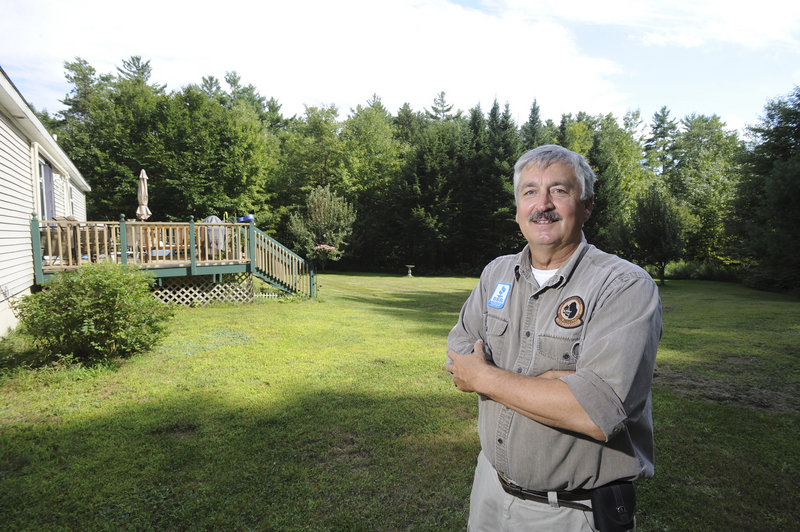To track the spread of West Nile virus in Maine, the state Department of Health and Human Services lists a hotline number for the public to call to report dead birds.
Because some birds, particularly crows, can carry the virus, unexplained deaths of birds are a potential public concern.
But the hotline number, (888) 697-5846, is no longer in service.
Bob Smith, a home inspector who owns Sherlock Homes Inspections in Durham, discovered that about 10 days ago, after he watched a robin fall out of a pine tree.
He saw the bird “flopping around on the ground” in his yard before it died in the grass.
Smith dialed the hotline. He got this message: “You have reached a call source number that is no longer in service. Please check the number you have dialed.” Click.
“I thought, ‘Typical government,’” Smith said.
The website where the hotline number appears is a collaboration of the Maine Center for Disease Control and Prevention, the Board of Pesticides Control, the Department of Environmental Protection and the University of Maine Cooperative Extension. But state officials could not say this week who would be responsible for changing the phone listing.
Like many Mainers, Smith had been alerted to West Nile virus, which has spread at least as far north as Gorham. The potentially fatal virus is spread by infected mosquitoes, which bite birds, horses and other mammals, including humans.
Dead birds might signal that the virus has spread farther, state health officials said. The state epidemiologist, Dr. Stephen Sears, said health officials aren’t really interested in reports of dead birds unless there is a “cluster” of at least three.
If three or more turn up, details of the finds (how many, when, found all at once or over a period of days, etc.) will be recorded, and the U.S. Department of Agriculture “might have some interest” in investigating other diseases, he said.
“One bird’s not tested,” he said. “There are multiple reasons for why birds die.”
According to the state website, www.maine.gov, health officials want to know about cases like Smith’s. But with such crossed wires, some people don’t know what to do.
Smith, not ready to give up after his call to the hotline, next tried a veterinary clinic. He said he was told, “Yes, it was a concern.” But the staff had no idea exactly what to do and advised Smith to call his town office, he said.
He called the Durham town clerk’s office. He was redirected to the Lisbon Police Department, which gave him an answer: “Bury it and don’t worry about it.”
So, he got out a shovel. He made sure, as health officials direct, not to touch the bird.
By then, he said, “I felt kind of frustrated. I mean, they don’t know what they’re doing. The left hand doesn’t know what the right hand is doing.”
As it turns out, the correct number of the Maine CDC Disease Reporting Hotline is listed under instructions for reporting the deaths or illnesses of equines, llamas and alpacas.
When he learned that, Smith laughed.
“This,” he said, “is just getting better and better.”
Sears, the epidemiologist, said, “The Internet is a great thing. But the problem is once you put something up,” you have to maintain it and keep it updated.
Just for the record, should you find three or more dead birds, the number to call is (800) 821-5821. That’s the Disease Reporting and Consultation Line in the Maine CDC’s Division of Infectious Disease.
The prompts don’t mention West Nile virus, though. They do address tuberculosis, sexually transmitted diseases and viral hepatitis.
So, just press 3 — disease reporting.
Whoever answers will take a message.
Staff Writer North Cairn can be contacted at 791-6325 or at:
ncairn@mainetoday.com
Send questions/comments to the editors.



Success. Please wait for the page to reload. If the page does not reload within 5 seconds, please refresh the page.
Enter your email and password to access comments.
Hi, to comment on stories you must . This profile is in addition to your subscription and website login.
Already have a commenting profile? .
Invalid username/password.
Please check your email to confirm and complete your registration.
Only subscribers are eligible to post comments. Please subscribe or login first for digital access. Here’s why.
Use the form below to reset your password. When you've submitted your account email, we will send an email with a reset code.